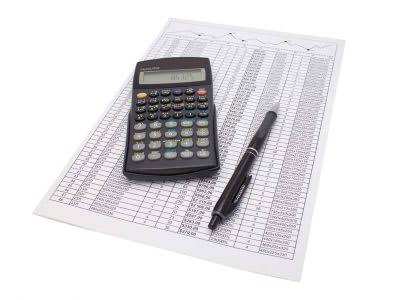Certified Public Accountant: What the CPA Credential Means

Between having more freedom to work independently in financial accounting, audit and taxation, as well as having proven knowledge and expertise, CPAs are more sought after than non-licensed accountants. Not only do firms, government agencies, and private companies want to bring CPAs on to their staffs, CPAs can also open their own business, providing services to individuals, businesses and non-profits. Adaptability and a commitment to ongoing education are crucial for CPAs to provide valuable guidance and maintain the financial health and integrity of businesses in these diverse industries. For external audits, certified public accountants prepare examination and investigation reports stating whether the reports of a company match its actual financial position or not.
- After all, your employer would not have hired you if you didn’t have the skills you need to succeed.
- By upholding strict ethical guidelines and professional standards, CPAs inspire trust among the public, businesses, and government entities.
- If a public accounting firm is hired to audit the financial statements of a client, then independence rules restrict the ability of the firm to provide many of the other services just noted.
- The AICPA requires that all CPA designation holders adhere to the Code of Professional Conduct, which lays out the ethical standards CPAs must adhere to.
- Public accountants working in the financial services sector must grapple with intricate financial instruments, risk management, and regulatory compliance.
- And consequently, it’s not uncommon—especially in larger firms—for the faces you see on a daily basis to be almost ever-changing.
- Public accountants in the technology industry face the challenge of dealing with rapidly evolving products and services.
Job security
- It is the process through which public accountants examine and verify a company’s financial records to ensure accuracy and compliance with accounting standards.
- After all, you never know when someone will voice an opinion about you to one of your many bosses.
- For complex ones, their fee can go up to thousands.” For the accounting services you might retain if you needed help managing taxable income in retirement, a CPA might charge $150 to $250 per hour, says Jiang.
- The accounting process includes summarizing, analyzing, and reporting these transactions to oversight agencies, regulators, and tax collection entities.
- These organizations also adhere to specific accounting standards, such as the Financial Accounting Standards Board (FASB) guidelines for nonprofits, adding complexity to the role of CPAs in this sector.
Tax accountants overseeing returns in the United States rely on guidance from the Internal Revenue Service. Federal tax returns must comply with tax guidance outlined by the Internal Revenue Code (IRC). Managerial accounting also encompasses many other facets of accounting, including budgeting, forecasting, and various financial analysis tools. Essentially, any information that may be useful to management falls under this umbrella. However, lenders also typically require the results of an external audit annually as part of their debt covenants. The reports generated by various streams of accounting, such as cost accounting and managerial accounting, are invaluable in helping management make informed business decisions.
What Are the Responsibilities of an Accountant?

She got into journalism to tell the kind of stories that change the world, in big and small ways. Coursera’s editorial team is comprised of highly experienced professional editors, writers, and fact… You may find that for some accounting positions, employers require or prefer candidates with a master’s degree. Reflect on the kind of company you want to work for and the role you want to fill that is best aligned with your accounting interests. I am an extrovert, which many people don’t think of as a typical characteristic of an accountant, but I find it helpful in establishing a bond with my clients.
History of the American Institute of Certified Public Accountants (AICPA)
Our mission is to empower readers with the most factual and reliable financial information possible to help them make informed decisions for their individual needs. A CPA as CFO contributes significantly to the company’s financial success and sustainability. They collaborate with various departments to provide financial guidance and support decision-making. what is public accounting Whether working for law enforcement agencies, legal teams, or corporations, CPAs specializing in forensic accounting bring a meticulous approach to uncovering the truth behind the numbers. This investigative role can be crucial in legal cases, where a CPA’s findings can provide the evidence needed to support or refute claims made in court.
History of the CPA Designation
The American Institute of Certified Public Accountants (AICPA) is a non-profit professional organization representing certified public accountants (CPA) in the United States. CPAs compile, maintain, and review financial statements and related transactions. CPAs have a wide range of career options available in public accounting (that is, working for an accounting firm), corporate accounting (working inside a company), or government service. Individuals with the CPA designation can also move into executive positions such as controller or chief financial officer (CFOs). While many CPAs offer tax preparation services, they can also work in government agencies, nonprofit organizations, and self-employment. Private accountants work within a single organization, managing its internal financial operations.

Certified Public Accountant: What the CPA Credential Means
Public accounting also includes filing corporations’ records with the Securities and Exchange Commission (SEC) and potential investors. The modern public accountant must embrace lifelong learning, staying abreast of technological advancements and regulatory changes. Continuous education and professional development are essential to remain relevant and provide the highest level of service to clients. Public accountants depend on the regulatory framework with unwavering reliance in their daily practice.
- Their pivotal role in ensuring financial accuracy and transparency is indispensable in the modern business landscape.
- Tax accounts may also lean in on state or county taxes as outlined by the jurisdiction in which the business conducts business.
- By 1880, the modern profession of accounting was fully formed and recognized by the Institute of Chartered Accountants in England and Wales.
- Regardless of their employer, most CPAs compile, maintain, and review financial statements and related transactions.
- To become a CPA, a candidate must meet specific educational criteria, which usually includes earning a bachelor’s degree in accounting or a related field.
Understanding the role of public accountants
International equivalency exams are offered so that CPAs can work in countries other than the one in which they were certified. Other countries have equivalent certifications, notably the chartered accountant (CA) designation created in Scotland and now used in many countries. Becker has outlined the CPA requirements by state and territory to help make it easy to understand what you need. It’s important to note that things like experience, location and role also affect salary, so it’s important to factor these in when considering earning potential. If you’re not sure where to start when it comes to filing, many resources can walk you through how to file your taxes.
Examples of Public Accounting

By upholding strict ethical guidelines and professional standards, CPAs inspire trust among the public, businesses, and government entities. These professionals analyze complex financial data, prepare reports, and often serve as expert witnesses in legal proceedings. Consultants assist clients in navigating complex financial regulations, making informed investment choices, and achieving their financial goals. Some states also require candidates to have a certain amount of work experience under the supervision of a licensed CPA before they can take the exam. Given the trust placed upon CPAs by the public, businesses, and government entities, they must adhere to strict ethical guidelines and professional standards. Members of the AICPA consist of professionals in business and industry, public practice, government, and education.
How do CPAs work?




